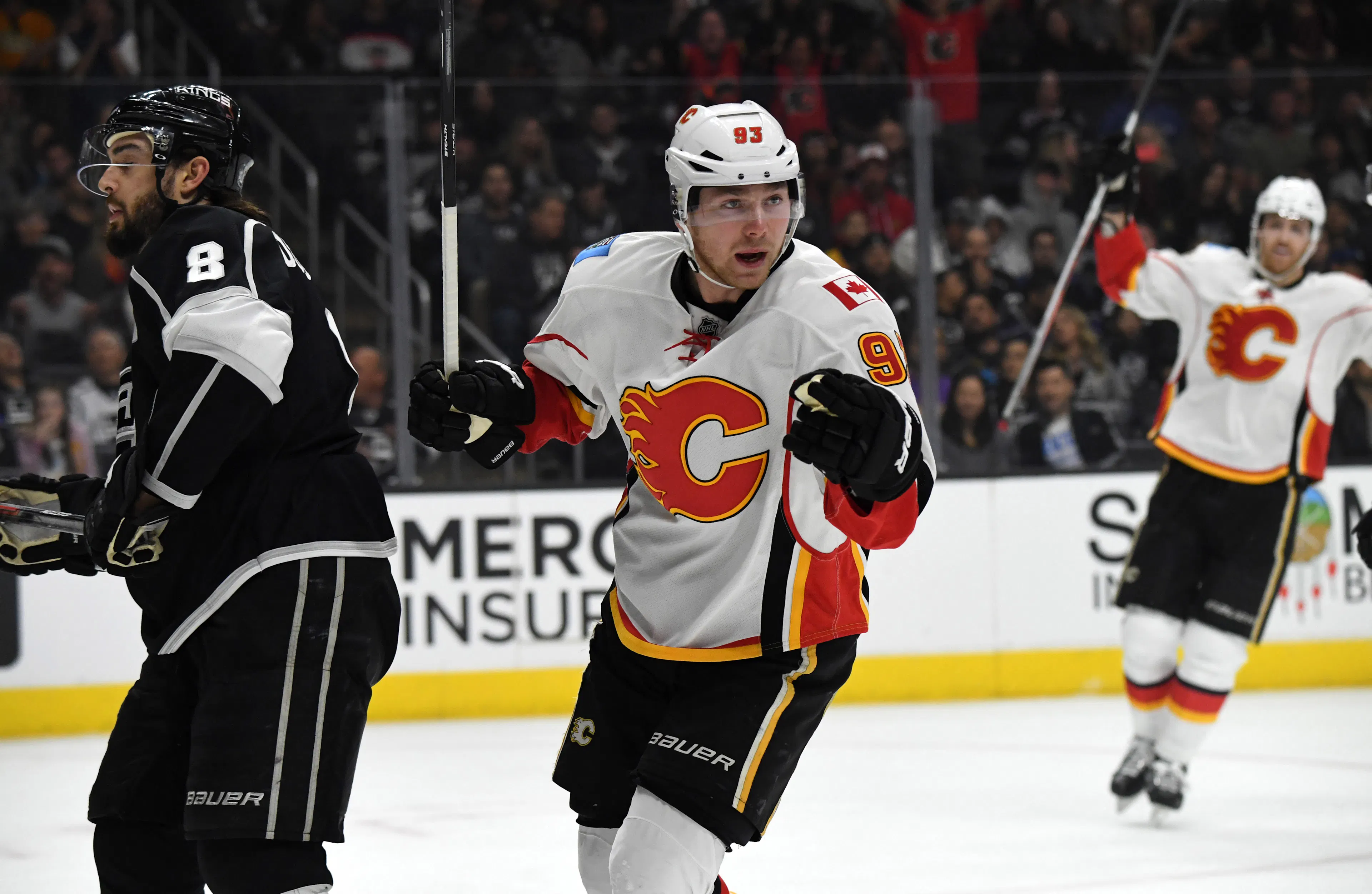Nation Sites
The Nation Network
FlamesNation has no direct affiliation to the Calgary Flames, Calgary Sports and Entertainment, NHL, or NHLPA
Why hasn’t Sam Bennett re-signed yet?

Photo credit: Kirby Lee / USA Today Sports
We’re roughly a week away from September and the Calgary Flames have a fair bit of business to tidy up before training camp begins. While the signings of Tyler Wotherspoon and Brett Kulak to new deals are fairly important pieces to figure out, they pale in comparison to the new contract for 21-year-old Sam Bennett.
The Flames’ first round selection back in 2014 (and the highest-drafted player in Calgary history), Bennett has two full NHL seasons under his belt in a top nine role despite not being legally able to buy alcohol in the United States for the entirety of his entry-level contract. Usually, deals for players who aren’t massive scorers (like Johnny Gaudreau or Sean Monahan) are a bit faster and tidier than those that are. So what’s taking so long with Bennett’s new contract?
A lot of the hold-up probably has to do with each side’s wants and needs – the Flames’ and Bennett’s.
A short-term “show-me” contract is probably what Bennett would get in a lot of markets. He’s a young forward who spent one year as a complementary winger on the flank of Mikael Backlund and another year as a third-line center. He has a year of fairly strong offensive production coupled with a year of flat offensive production. A one- or two-year deal would probably be a fit. The Flames get Bennett tied down for a couple years at a lower cap hit, he gets an opportunity to show what he can really do, and both sides get to kick the can down the road and delay a decision on locking him down for a longer term.
The challenge for the Flames is that they feel they have a window to contend right now. At the same time, they have two big contracts to deal with over the next two summers: Backlund in 2018 and Matthew Tkachuk in 2019. Both are likely to be big cap hits for the team, at a time when the team wants to retain some flexibility in order to potentially add a piece at the trade deadline – in other words, it doesn’t behoove them to begin the season snug up against the salary cap.
Because of “the window” and the desire to get everybody important locked down right now so that they have some room to re-sign Backlund and Bennett, the Flames’ desire is probably now skewed towards a three-year pact. But the challenge there is both sides, Bennett and the Flames, have to engage in some projecting of what Bennett will be over the next three seasons to arrive at an acceptable cap hit. And given his variable production and performance during the past two NHL campaigns, that’s tough. If you dive into Hockey Reference’s player comparison tools, it’s tough to find decent comparisons for players with two full NHL seasons under their belts before their 21st birthdays with Bennett’s production – arguably the closest match production-wise is Mikkel Boedker’s 2011 deal with a $1.1 million cap hit, but even then Boedker spent three years as a pro and was arguably more of a known quantity at that point.
The X-factor here is Brad Treliving (who coincidentally was with the Coyotes when the Boedker deal was made). Compared to his predecessors, Treliving seems completely fine with using the leverage point he has on his restricted free agents – time – to keep their cap hits down. Players re-signed in August or September include Lance Bouma (2014), Micheal Ferland (2015), Wotherspoon (2016), Monahan (2016), and Freddie Hamilton (2016). While nobody’s missed a regular season game due to a lack of contract (Gaudreau was signed in October 2016), Treliving seems to have a salary structure in mind for his club and is completely willing to wait out the other side of a negotiation to get a cap hit where he wants it to be.
Long story short, there are a lot of good reasons – primarily based upon salary structure and avoiding multiple key contracts coming up for renewal in the next two seasons – that are factoring into the Bennett contract negotiation sprawling into the very last bits of August (and perhaps beyond). Given the complexities involved and Treliving’s reputation as someone unconcerned about time constraints, I’d recommend putting some coffee on; we may be here for awhile.
